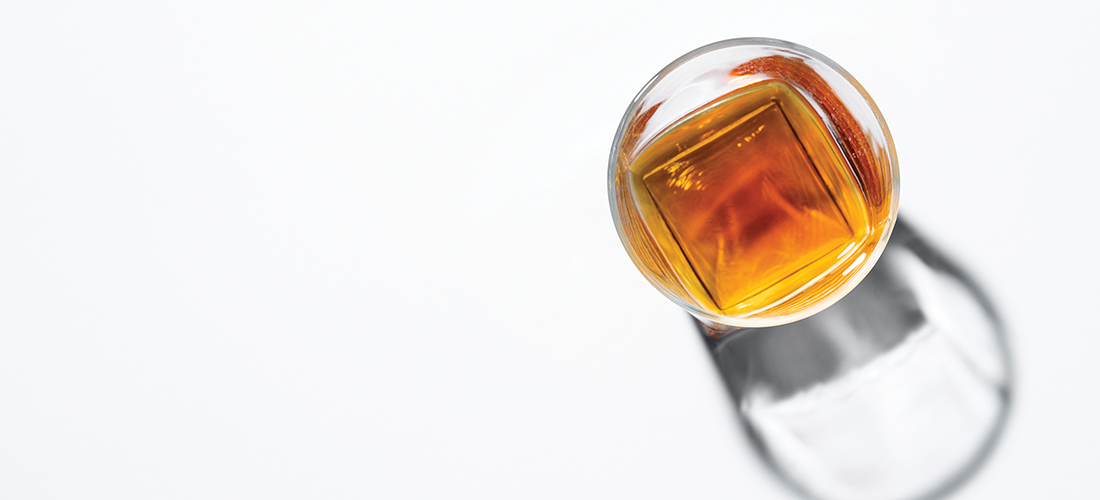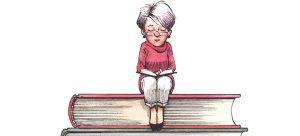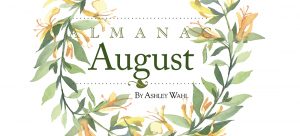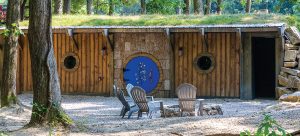
Howard and Other Fixtures
It was dark in there — the house, the heart pine and Howard’s heart — yet we always saw the light
By Cynthia Adams
Our den’s heart-pine paneling was stained so darkly you could barely make out the swirls, which imperceptibly darkened with every year. A faux-shuttered, oak TV cabinet presided over our family room, which featured Early American decor at its very apex. I even recall a fake spinning wheel. Early American was embraced by children of the Depression, much like doughnuts and savings bonds.
The furniture and accessories were one-part TV Western-inspired (Remember the dark interiors of Bonanza’s Ponderosa?) and the other part owing to the limited range of our local furniture store.
On the wall was a large, dark-stained curio cabinet from MaLeck woodcraft factory in Wingate, which was owned by a relative. It was filled with knickknacks, including a tiny coffee grinder. A matching magazine rack hid Mom’s National Enquirers and Grits.
My father’s untouchable recliner occupied an oval brown-and-cinnamon braided rug, likely from Capel Rugs in Troy, which profited from Early American better than early Americans had.
And perched like a fixture in our den in his dusty work clothes — a navy blue jumpsuit and Caterpillar cap, which covered his black hair — sat Howard, our father’s pathologically shy bulldozer operator. The work clothes indicated that he had not yet been home to Ruby, his devout and long-suffering wife. Although Howard had not found religion, Ruby sure had. For hours, Howard would just sit there, often in companionable silence, though sometimes he could be surprisingly chatty.
Behind the noticeably inebriated Howard were shelves filled with Reader’s Digest condensed volumes, the World Book Encyclopedia (a must in pre-Internet days) and the World Book’s supplemental annuals, which helpfully summed up what we had just experienced in the prior year, in case we had memory lapses. Life, National Geographic and Progressive Farmer magazines — all well-thumbed — were on the shelf.
But Howard had not come to read. He sought company.
A nubby brown-and-mustard plaid sofa formed a right angle to Howard’s often-claimed Early American chair. These were, and I do not exaggerate, impervious to stain.
Matching coffee table and end tables with spindles flanked the seating. These were sturdy tables. I know this, because on sleep-walking forays, I sometimes awoke standing on top of that coffee table.
Silk flower arrangements, earth-toned and sporting dried money plant and reedy shoots, filled squatty brass bowls meant to approximate spittoons, something I observed watching Westerns.
The sole window was covered by mustard yellow, light-obviating curtains complete with “sheers” meant to check any excess rays of light.
Even midday, the room was tavern-like. This may have reminded Howard of his prior appointment at the bootlegger.
Most often, he showed signs of having hit the Four Roses hard. (The tip off was that Howard would actually talk. Otherwise, he could not.)
“I like the way you walk,” he observed noncommittally, as I strode briskly past him to the kitchen one afternoon.
At that, I stopped.
“You walk like you know where you’re going,” he added good-naturedly, slurring the word “where.”
He spelled it out: “G-O-I-N-G.”
It wasn’t lewd. This was just Howard, a hapless truth-teller when under the influence.
I shrugged and continued.
If my younger brothers and sister popped in, they would try cajoling Howard into cheeseburgers from Jenkins. It is an abiding mystery why we were allowed to ride with an obvious drunk — perhaps because Howard had a clean driving record: never a wreck nor a DUI.
Once behind the wheel of the Pearl, his yacht-sized white Ford Fairlane, he seldom drifted across the dividing line. He kept the radio on a country station.
At the wheel, Howard was prone to talk.
“Miz Ruby don’t deserve me,” he would lament as the music whined. “She’s a good Christian woman.”
We knew better than to comment.
“She’s got dinner on the stove waiting for me,” he would add while heading straight to the burger joint in the opposite direction from his home.
Even as Howard slurred a curb-side order, we knew as well as he did that it would be uneaten.
Once we were home, Howard would shoo us inside with white bags of burgers and fries, disappearing inside Pearl’s trunk to root for his bourbon, though Dad kept a bottle hidden in our broken dishwasher for him. Dad even called the dishwasher “the bar.”
(“Why do we need a dishwasher when we have five children?” he would ask incredulously.)
When Howard reappeared inside, our mother made a fruitless effort to feed him.
She once offered pound cake and coffee.
“No’mmm,” he slurred one memorable evening, swallowing “Ma’am.”
“I don’t like dry cake. Chokey cake. C-H-O-K-Y.”
Apparently, Miss Ruby was not only a paragon of virtue, but a fine baker as well.
This insult was never forgiven; our mother’s grudge held fast.
Yet we regarded Howard as one of us and loved him.
We sold him countless boxes of World’s Finest Chocolates and God knows how many magazine subscriptions.
One night, we learned that Howard was found dead of a heart attack, sitting in the Pearl at home. I imagined Ruby waiting; Howard’s supper long grown cold. Only later did my father tell me the colder truth; Howard had died elsewhere, in flagrante delicto. (A fate my father, too, would share.)
Our father sold the dozer and earth-moving equipment. Only the den remained fixed.
We, each of us, drifted. I left for college and pretended adulthood, walking as Howard had said, as if I knew where I was going. OH
We dare you to utter the words “Early American” to O.Henry’s contributing editor Cynthia Adams. On second thought, maybe you shouldn’t.
Her favorite children’s book is easily The Borrowers, by Mary Norton.





